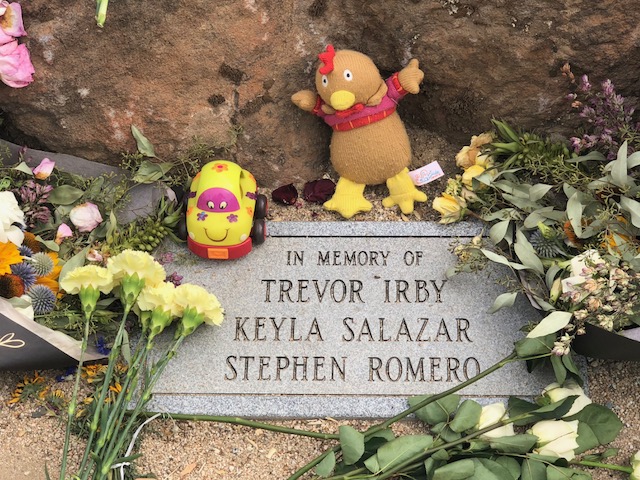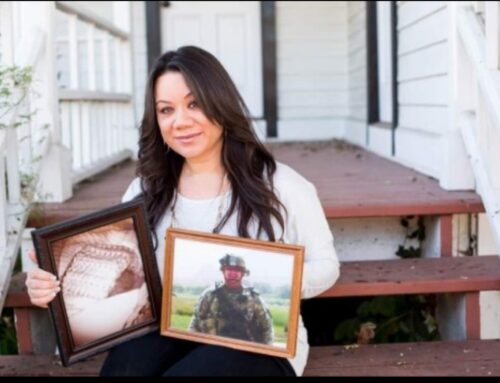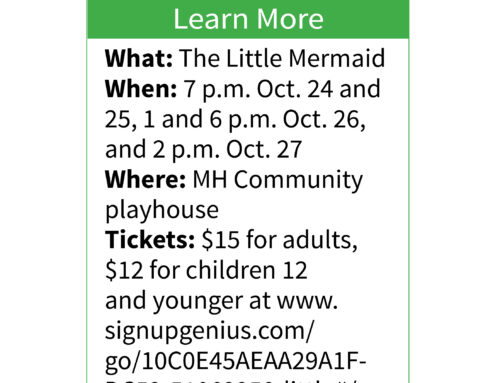Parents can do several activities to help their children deal with anxiety

Photo by Marty Cheek
From left: Mildred Torres, Evelyn Torres, Lillyane Sanchez, (holding middle sign) and Yesenya Jaurigue show their pride for their city at the Gilroy Strong vigil held Aug. 1, 2019 in downtown after the Gilroy Garlic Festival mass shooting.
This editorial is the opinion of Morgan Hill Life

A plaque at a memorial at the site of the 2019 Gilroy Garlic Festival shooting honors the victims who were killed.
Photo by Robert Airoldi
The new year started on a horrific note for California. In an eight day period 25 people were killed in four separate mass shootings. The slayings shocked the communities of Monterey Park, Half Moon Bay, Oakland and the San Joaquin Valley town of Goshen.
For some South Valley residents, the news of each slaying brought up painful emotions stirred by memories of the 2019 Gilroy Garlic Festival mass shooting when a 19-year-old man with an assault rifle killed two children and a young adult before taking his own life.
The devastating impact of firearms violence extends far beyond physical harm. It also takes a toll on mental health. Fear and trauma can lead to long-term emotional and psychological damage for those who have witnessed the killings. It can also induce anxiety and depression in people — especially children — who live in fear of a gun attack. This takes a toll on people’s quality of life, including how well they perform at work or school.
Psychologists offer tips to help reduce the impact of mass gun murders on our mental health and emotions:
- Seek professional help: If you have been directly affected by gun violence or are experiencing symptoms of trauma, it is important to seek therapy from a mental health professional. Counseling and other forms of therapy can help you process your experiences and cope with the emotional fallout.
- Connect with others: Talking to friends, family, or other members of your community can help you feel less alone and more supported. Joining a support group for those affected by gun violence can also be beneficial.
- Take care of yourself: It’s important to take care of yourself physically and emotionally. This can include getting enough sleep, eating well, and engaging in activities or hobbies you enjoy.
- Educate yourself: Gaining knowledge and understanding about gun violence can help you feel more in control and less afraid.
- Get involved: Joining a local organization working to prevent gun violence, or advocate for policies that reduce gun violence can help you channel your feelings into positive action.
Parents can do several activities to help young ones deal with anxiety and mental stress related to gun violence and mass shooting incidents they see in the media:
- Limit exposure to news coverage: Children can be vulnerable to reports of violence they see on TV or on the Internet, so it’s important to reduce how much details — especially graphic images — they receive about these events.
- Talk to your children: Discuss what children and teens have seen or heard and provide them with accurate and age-appropriate information. Encourage kids to express their feelings. Answer their questions honestly.
- Validate feelings: Children may feel scared, sad, or confused about what they have seen or heard. It’s important to validate their emotions and let them know it is normal to feel that way.
- Reassure them of their safety: Children may be particularly worried about their own safety. Reassure them the chances of them personally facing gun violence in school or elsewhere is slim.
- Maintain routine: A daily routine can be comforting and provide a sense of normalcy for children.
- Seek help: If your child is struggling to cope with their emotions, consider a mental health professional’s help with additional support and guidance.

Reducing mass shootings in America is a complex issue. It requires a multifaceted approach, including changes in society’s attitude toward guns. Effective actions include strengthening background checks, passing red flag laws, gun buyback programs, and mental health services specifically provided for individuals who might be at risk of committing acts of violence.
Providing funding for scientific research can also help. The Dickey Amendment passed in 1996 bans the Centers for Disease Control and Prevention from conducting research on gun violence. Funding researchers doing studies analyzing the psychology and behavior patterns of mass shooters can help lawmakers better understand the issue better and make informed decisions on how to reduce mass shootings without the bias of politics.
More public engagement in implementing real solutions will push elected officials to create policy and laws to reduce the number of mass shootings while considering the right balance between upholding the rights of law-abiding citizens and protecting the public. In turn, achieving a safer society will enhance overall mental health in our communities, thus increasing everyone’s quality of life.
Editor’s note: This editorial was written with help from the ChatGPT artificial intelligence system.







